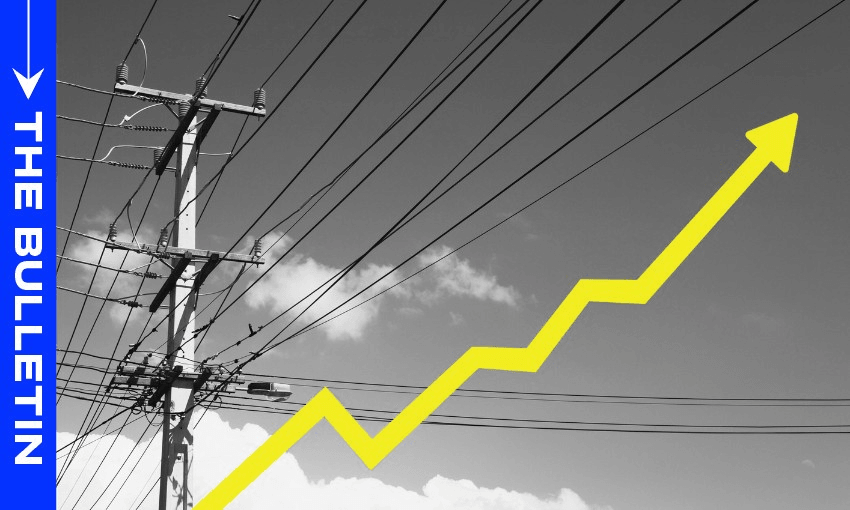The closure of two mills near Ohakune will mean the loss of 230 jobs, writes Stewart Sowman-Lund in today’s extract from The Bulletin.
To receive The Bulletin in your inbox every weekday morning, sign up here.
‘This is all we know’
Winstone Pulp International, the largest employer in the Ruapehu District, has confirmed it will close its two mills indefinitely, leading to the loss of over 230 jobs. As Glenn McConnell reported last night for ThreeNews, it’s a serious blow for the region and a decision staff now out of work had hoped desperately could be avoided, launching a petition to try and save the mill. Winstone boss Mike Ryan blamed high energy costs for the decision and warned that other businesses of a similar nature could follow suit. But that’s little comfort for the hundreds now looking for new jobs, many of whom have known nothing else. “I’ve been here almost 20 years. It’s become a second home,” one worker told 1News. “Now what do we do? This is all we know.”
Mill closure just one part of the puzzle
The writing has been on the wall for several weeks. The proposed closure was first put forward about a month ago. Then, in late August, a packed public meeting in Raetihi saw emotions run high. RNZ’s Alexa Cook was there, reporting that “one by one workers, their whānau, and other locals told the crowd, including the mill bosses and the National MP Suze Redmayne, that the closure is turning their lives upside down”. The Whanganui Chronicle reported that while the mill had pulled out “all the stops” to try and halt the closure, it was facing rising costs that were unsustainable.
Against the backdrop of all of this, a broader and ongoing electricity crisis is being dealt with. As we talked about a few weeks ago, the government has announced steps to try and address this, including a full review of the electricity market. But, despite calls for “instant results” from regional development minister Shane Jones, many of the government’s proposals are longer term ambitions that may do little to address the current situation. The mill closure is one part of that larger puzzle, but it has provided a human face to the crisis. It might not be the only casualty either, with RNZ’s Robin Martin reporting on another possible factory closure in Auckland’s Penrose.
Who is to blame?
The Winstone Pulp lies within the Rangitīkei electorate. As the Herald’s Thomas Coughlan reported, the local MP, National’s Suze Redmayne, is “gutted” by the pulp’s closure and said there would be a trickle down effect. “We’ve got people with partners that work in the health service – at the moment, our health service is struggling to get staff, so it makes a massive difference,” she said. While Redmayne wasn’t prepared to “blame” anyone for the situation, others in the government were quick to react.
On social media, Act’s Simon Court said it was the result of “economic vandalism” by Labour, adding rather brazenly that the former government had a “kamikaze approach” to climate change that had “crashed the reliability of our energy sector”. Despite having hard words in the past for the Electricity Authority, we’re yet to hear directly from Shane Jones. He’s due to speak to RNZ’s Morning Report shortly, if you’re interested.
What can be done
Labour’s manufacturing spokesperson Helen White told the Herald there were options to keep the mills open, blaming electricity gentailers for not investing sufficiently in new generation assets. The government, she said, should be intervening. That’s largely the same argument that’s been pushed previously by Shane Jones, and even the minister responsible for the electricity sector, Simeon Brown, but intervention hasn’t eventuated.
Smaller players in the market are arguing for change, too. As reported by BusinessDesk’s Ian Llewellyn, independent retailer Octopus Energy said the government’s moves, including importing liquid gas, won’t help address the underlying issues. “The Electricity Authority has been warned for years by industry and exporters that market arrangements have made electricity uncompetitive and prices too high for our productive sector,” said the company’s chief operating officer Margaret Cooney. In comments to Newsroom, Electric Kiwi’s Huia Burt similarly argued that “full structural separation [of generation and retail] is the gold standard”, though acknowledged a complete break up was unlikely. Everyone seems to know what the issue is – will anyone do anything about it?
